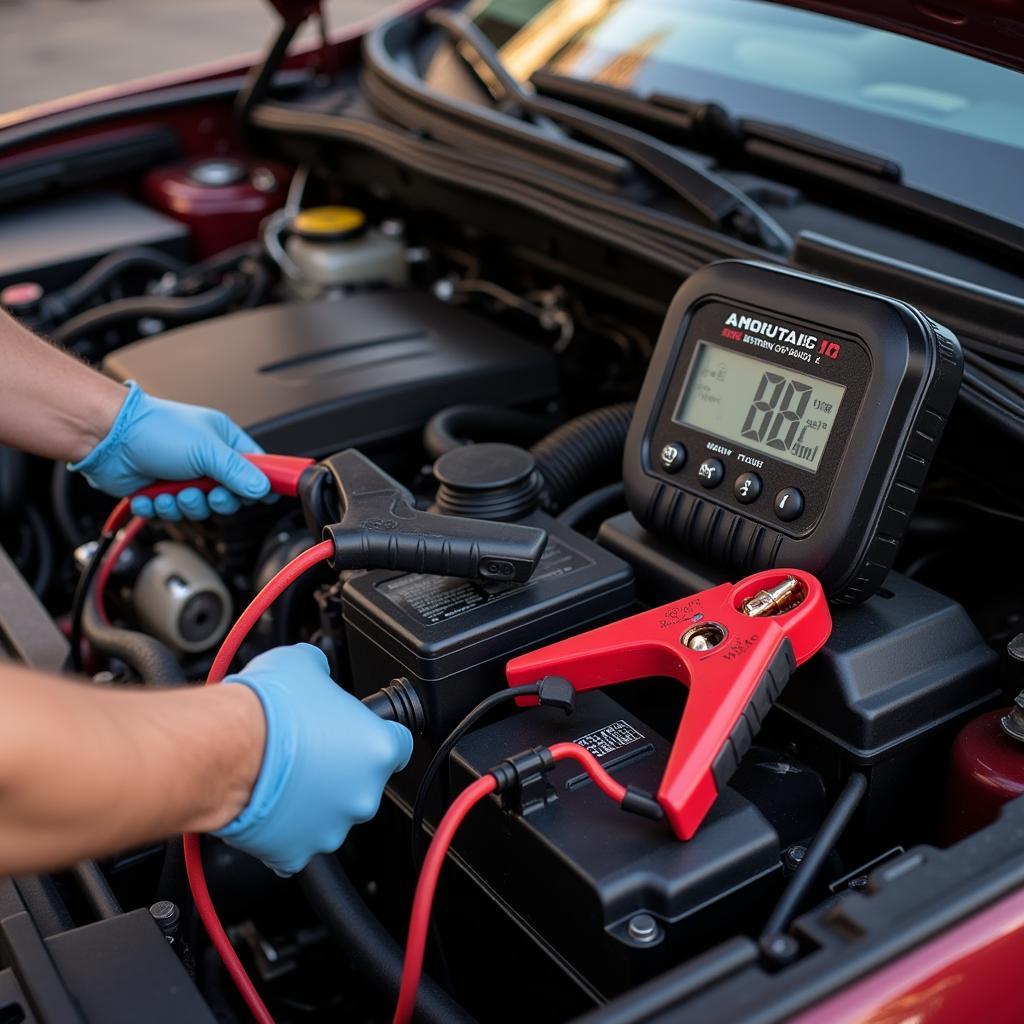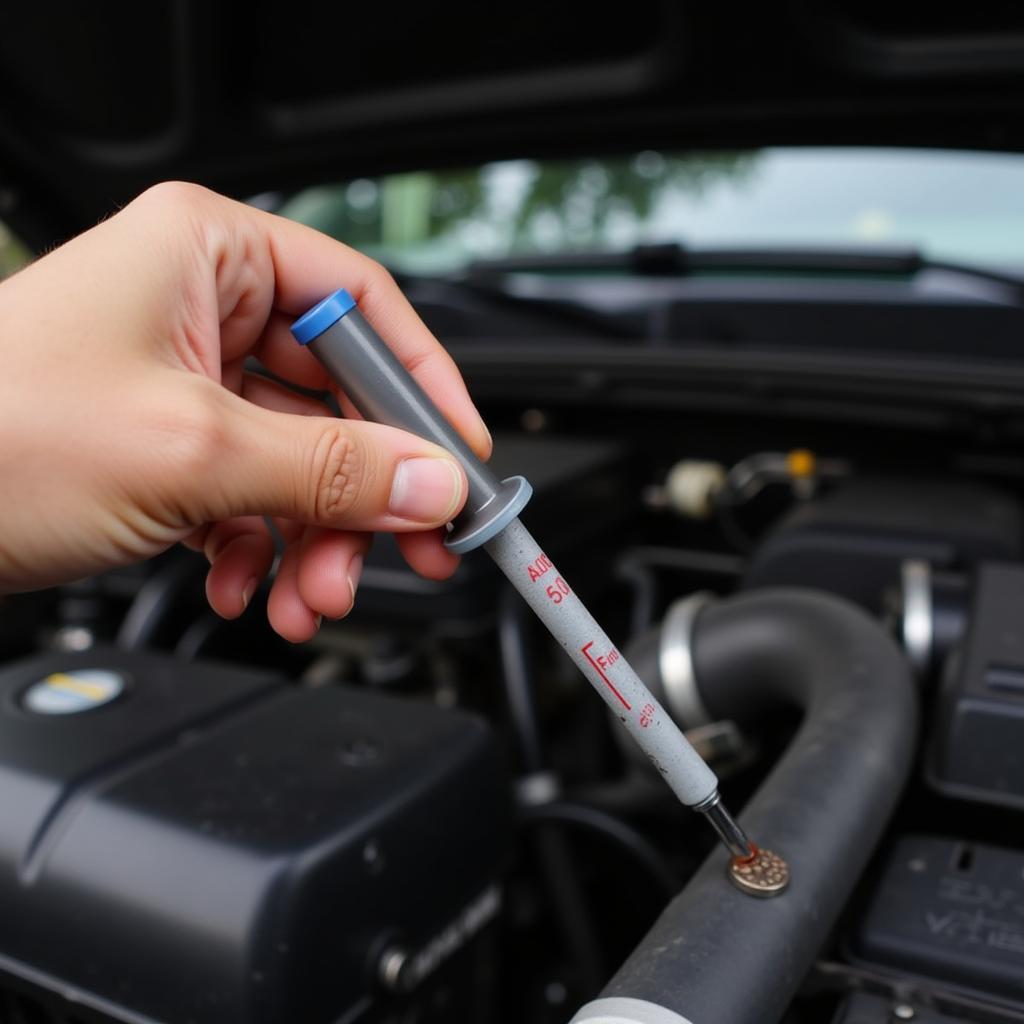Diagnosing Car Speaker Problems can be tricky, but with a systematic approach, you can pinpoint the issue and get your audio system back in top shape. This guide provides a comprehensive walkthrough of common car speaker problems and how to troubleshoot them effectively.
Common Car Speaker Problems and Their Causes
Car speakers, like any other component, are prone to wear and tear. Understanding the common issues and their underlying causes can help you diagnose the problem efficiently. These issues can range from distorted sound and no sound at all, to rattling and buzzing noises. Loose wiring, blown fuses, and damaged speaker cones are frequent culprits. Even the car stereo itself can sometimes be the source of the problem, not the speakers themselves. For example, a malfunctioning head unit could cause issues like car stereo balance problem.
No Sound From One Speaker
This is often caused by a loose or disconnected wire, a blown fuse, or a faulty speaker. Begin by checking the wiring at the back of the speaker and the stereo. Next, check the relevant fuse in the fuse box. If those are fine, the speaker itself might be damaged.
Distorted Sound
Distorted sound can be a symptom of a damaged speaker cone, a blown voice coil, or amplifier problems. A buzzing or crackling sound is particularly indicative of these issues. Carefully inspect the speaker cone for tears or deformities. If the cone looks fine, the voice coil might be the issue. You might have a car stereo output problem.
Rattling or Buzzing Sounds
These sounds often indicate a loose speaker, loose wiring within the speaker enclosure, or a problem with the door panel itself. Secure any loose components and ensure the speaker is firmly mounted.
Diagnosing Car Speaker Problems: A Step-by-Step Guide
Here’s a systematic approach to diagnosing car speaker problems:
-
Check the Head Unit: Start by ensuring the head unit is functioning correctly. Try playing different sources (radio, CD, AUX) to rule out source-specific issues. Also check the balance and fader settings to make sure they aren’t accidentally muting a specific speaker. Sometimes, the issue lies with the head unit itself, not the speakers. Issues like those encountered with a 03 lincoln town car radio problems can be quite complex.
-
Inspect the Wiring: Check all speaker wires for loose connections, breaks, or corrosion. Pay close attention to the connections at the back of the stereo and the speakers themselves. A simple loose wire can often be the root of the problem.
-
Test the Fuses: Locate the fuse box and identify the fuse for the affected speaker. Using a fuse tester or replacing the fuse, determine if the fuse is blown.
-
Test the Speakers: Use a multimeter to test the speaker’s impedance. This will help you determine if the speaker is blown.
-
Check the Speaker Cone: Visually inspect the speaker cone for any tears, holes, or deformities. A damaged cone can cause distorted sound.
-
Isolate the Problem: If you have multiple speakers experiencing issues, try isolating the problem by testing each speaker individually. This can help you determine if the issue is with a specific speaker, the wiring to that speaker, or a more systemic problem.
How do you troubleshoot a car speaker that’s not working?
Begin by checking the most obvious things: wiring, fuses, and the head unit’s settings. If those are fine, test the speaker directly with a multimeter.
What causes a car speaker to stop working?
Common causes include blown fuses, loose or damaged wiring, and faulty speakers. Sometimes the problem can even be traced back to the car stereo having no power, as with car stereo no power problems.
“A simple multimeter can save you a lot of time and money when diagnosing car speaker problems,” says automotive electrical expert, Michael Carter, ASE Certified Master Technician. “It’s a crucial tool for any car audio enthusiast or technician.”
Another expert, Sarah Miller, a car audio specialist with over 15 years of experience, adds, “Don’t underestimate the importance of checking the wiring. A loose or corroded wire is often the culprit behind many car audio issues.”
Conclusion
Diagnosing car speaker problems can seem daunting, but by following these steps, you can often pinpoint the issue and fix it yourself. Remember, a systematic approach is key. From checking the head unit and wiring to testing the speakers and fuses, each step brings you closer to a solution. If you still can’t find the issue, don’t hesitate to reach out for professional help. Contact us at AutoTipPro, +1 (641) 206-8880, or visit our office at 500 N St Mary’s St, San Antonio, TX 78205, United States for assistance with your car speaker problems. We’re here to help you get your sound system back on track.







Leave a Reply